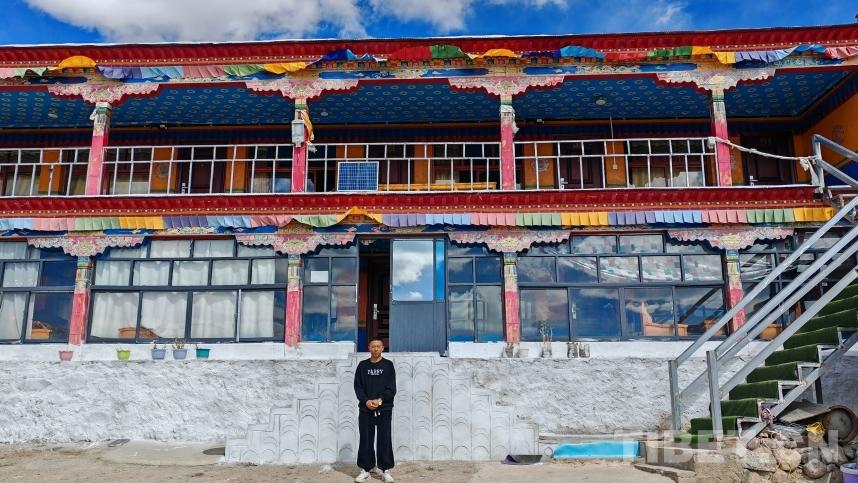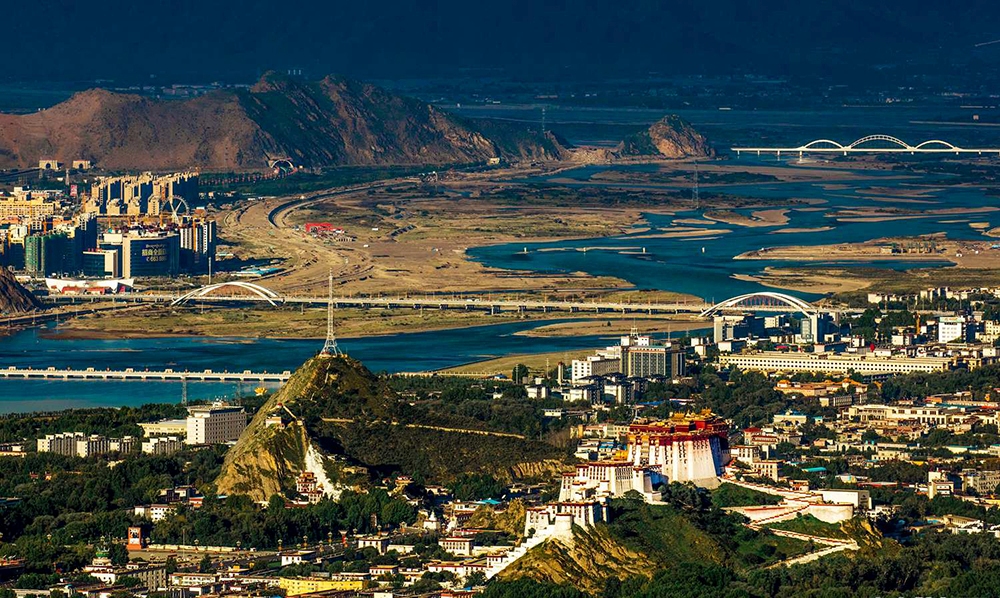Tibetan Merchants’ Patriotism in War of Resistance Against Japanese Aggression
In the summer of 1938, when the Chinese People’s War of Resistance Against Japanese Aggression was at a critical juncture, Lin Sen, Chairman of the then Republic of China, welcomed in Chongqing a special group of guests—the Delegation of Solicitude of the Xikang People for the Soldiers at the Front. The special delegation delivered in all more than 400 supplies consisting gold and silver jewelry, Tibetan teapots, saddles, and other local donations to support the war effort.
The following spring, led by the Pandatsangs—a rich Tibetan trading family with influence—a caravan of more than 2,000 mules and horses set out from Kangding, crossing Que’er Mountain and Erlang Mountain to Chongqing and other key battlefronts. Their route followed the historic Tea-Horse Road.
Once forgotten due to its rugged and treacherous terrain along the route, the Tea-Horse Road saw a resurgence during the War of Resistance, returning to public consciousness. Trade caravans laden with wartime supplies made their way along its winding paths, turning it into a vital artery connecting the enemy rear with the front lines in the war against foreign aggression.
This ancient trade route became a lifeline for frontline soldiers and a symbol of responsibility of the merchants.
Following the full-scale outbreak of the Chinese People’s War of Resistance Against Japanese Aggression, Japan launched a strategic blockade of China’s rear areas. At that time, all coastal trade routes were cut off, and the Burma Road was also completely severed. Additionally, with limited international transport capacity in the southwestern frontier, the re ar regions faced severe supply shortages.
In this critical moment, Tibetan merchant groups—represented by the Pandatsang and the Sumdotsang families—who held control over the vital trade routes in the southwest swiftly reorganized the trade network. They transformed a section of the Tea-Horse Road—from India to Kangding via Xizang—into a key strategic supply line for the war effort.
Historical records show that this route enabled the transport of up to 240 metric tons of supplies from India each month. During the war, the Pandatsang family alone delivered goods worth USD 150 million through this route, turning it into a “golden bridge” between Xizang and inland China and a lifeline of patriotism and national solidarity.
Even more remarkable was how this commercial campaign for supporting the War of Resistance fostered a united national identity that transcended geographical boundaries.
In 1942, caravans along the Tea-Horse Road moved in an unbroken stream, transporting Western medicine, leather, tea, cloth, and other vital supplies. Merchants and handlers from across ethnic groups took an active part in supporting the war efforts, greatly contributing to the wartime economic vitality of China’s rear regions. This could not go without the mobilization efforts of patriotic personages such as the Pandatsang family and Kelzang Tsering. Understanding the national crisis, they established the Xikang-Xizang Trade Corporation and rallied Tibetan merchants to support the war effort at all costs.
Another great example is Tibetan merchant Tsering Samdrup (Madarin name Ma Zhucai). Amid rising patriotic sentiment, he, leveraging his frequent traveling between China and India, organized multi-ethnic caravans to transport international aid supplies from India to China in 1941. In Kalimpong, he also joined overseas Chinese leaders in rallying anti-Japanese support and launched a monthly donation drive to support the cause.
As commerce gave way to national duty, the merchant groups of the snowy plateau exemplified the deeper meaning of the phrase “a unified Chinese nation” through decisive action.
Though the wars of the past have ended, the legacy of Tibetan compatriots resisting Japanese aggression through commerce still echoes along the Tea-Horse Road.
Reflecting on those turbulent times, one thing is clear: when the nation faced grave danger, Tibetan merchants—guided by sharp foresight and unwavering determination—stood with the rest of China to establish a vital supply line deep in the rear of the War of Resistance. This was not only a triumph of business acumen, but also a testament to how business can serve the people. It shows that when commerce is powered by patriotism, it can defend the homeland. And it is believed to help build a bridge of common proseperity and great unity among all ethnic groups in times of peace and development. Like a living artery along the ancient road, the spirit of patriotism endures, strong and everlasting.
Stories

Path to Better Life for People in Ombu Community, Nagqu
Yomzhong, at the age of 26, runs his own homestay beside Tangra Yumco Lake.
Editor’s Choice
- Tibetan Merchants’ Patriotism in War of Resistance Against Japanese Aggression
- Reincarnation of Living Buddhas never decided by reincarnated individuals: signed article
- Lot-drawing ceremony is a traditional religious ritual and historical convention that must be upheld in reincarnation of Living Buddhas: signed article
- Religious rituals fundamental source of legitimacy for Living Buddha reincarnation: article
- Central government approval is fundamental principle, legal safeguard of Grand Living Buddha reincarnation: signed article

